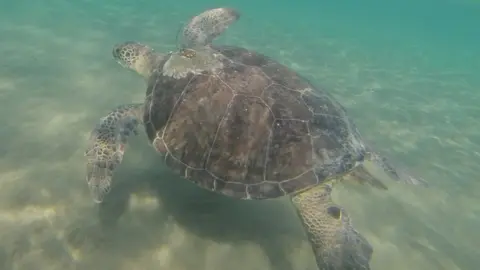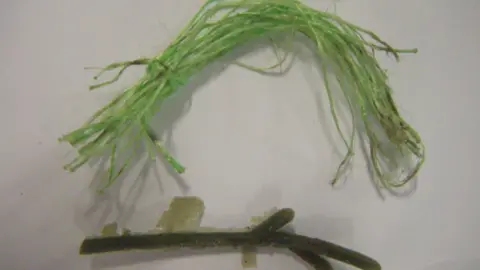Turtles 'confused by food-like plastic', says Exeter University study
 Emily Duncan
Emily DuncanGreen turtles are eating plastic which looks like their diet of sea grass, researchers say.
Black bin bags, fragments of fishing rope and carrier bags can all confuse turtles, a study found.
Researchers from the University of Exeter examined turtles found washed up on beaches in Cyprus after getting tangled in fishing nets.
Plastic was found inside all of the 19 turtles examined and one turtle had 183 pieces of plastic in its stomach.
 Exeter University
Exeter UniversitySmaller turtles tended to ingest more plastic, possibly because they were "less experienced" and so "more likely to eat the wrong food", the study said.
Scientists examined green turtles after previous research showed leatherback turtles ate plastic that looked like jellyfish.
Dr Emily Duncan from the university said: "Sea turtles are primarily visual predators, able to choose foods by size and shape, and in this study we found strong evidence that green turtles favour plastic of certain sizes, shapes and colours."
 Exeter University
Exeter UniversityScientists compared the kind of plastic inside the turtles with debris on the beaches and "the plastic we found in these turtles suggests they favour threads and sheets that are black, clear or green".
Professor Brendan Godley, who leads the Exeter Marine research strategy said it was "important to know what kinds of plastic might be a particular problem" and "highlighting issues that can help motivate people to continue to work on reducing overall plastic consumption and pollution".